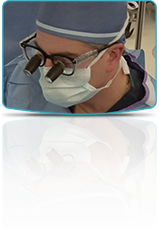Is Your Adult Acne Walking You Down “Memory Lane”?
- Thursday, 15 October 2015 06:34
- Admin
- 0 Comments
Ah, High School. The good old days of teenage acne, angst and adrenalin. And The Prom, complete with the huge pimple that erupted the day of the dance right in the middle of your face.
You are older and wiser and the face of acne is changing along with you – 35% of women in their 30s, 26% in their 40s and 15% age 50+ regularly battle adult acne.
- Diet – It’s not true that greasy foods cause breakouts, but the items below may do just that:
• Stress – Experts say stress can lead to acne by triggering the release of cortisol, the hormone that signals your body to produce more pore-clogging oil.
• Carbs and sugar – Any food that leads to a spike in your blood sugar, such as pasta, bread, and sweets, can trigger skin’s inflammatory response and provoke a breakout.
• Dairy – Several studies have shown a link between dairy products and pimples, perhaps because of the hormones that are present in these foods. Buying organic can help. - Hormones – When your body experiences a spike in male hormones such as testosterone, oil production increases, causing clogged pores where acne bacteria grows. This leads to inflammation and pimples. This male hormone spike may occur more frequently during peri-menopause, but it also happens just before your period. Women over the age of 33 are more likely to get pre-menstrual pimples than younger women are.
- Polycystic Ovarian Syndrome (PCOS) – Conditions with a hormonal component, such as polycystic ovarian syndrome, are often-overlooked causes of acne. PCOS affects 5% to 10% of women, and many suffer for years without realizing they have it. If your acne is accompanied by irregular periods or excessive hair growth, talk to your doctor. If you have PCOS, it and other types of hormone imbalances, can often be treated with a medication such as an oral contraceptive or anti-androgen.
If you are suffering the annoyance of adult acne and would like to learn more, call for a consultation with Dr. Kimmel. In Pottsville: (570) 622-2900; in Hazleton: (570) 455-4252.










 THE OFFICE
THE OFFICE